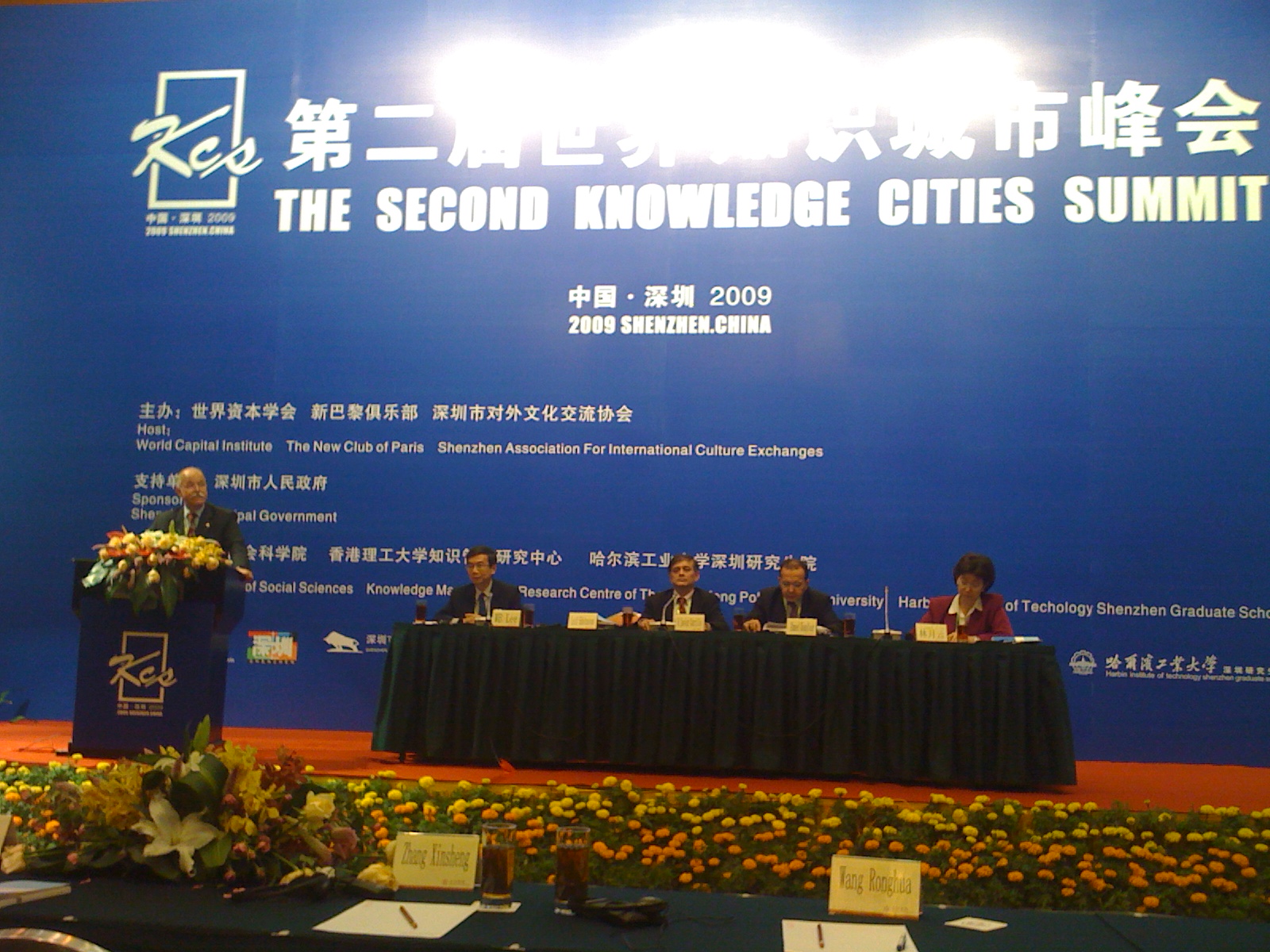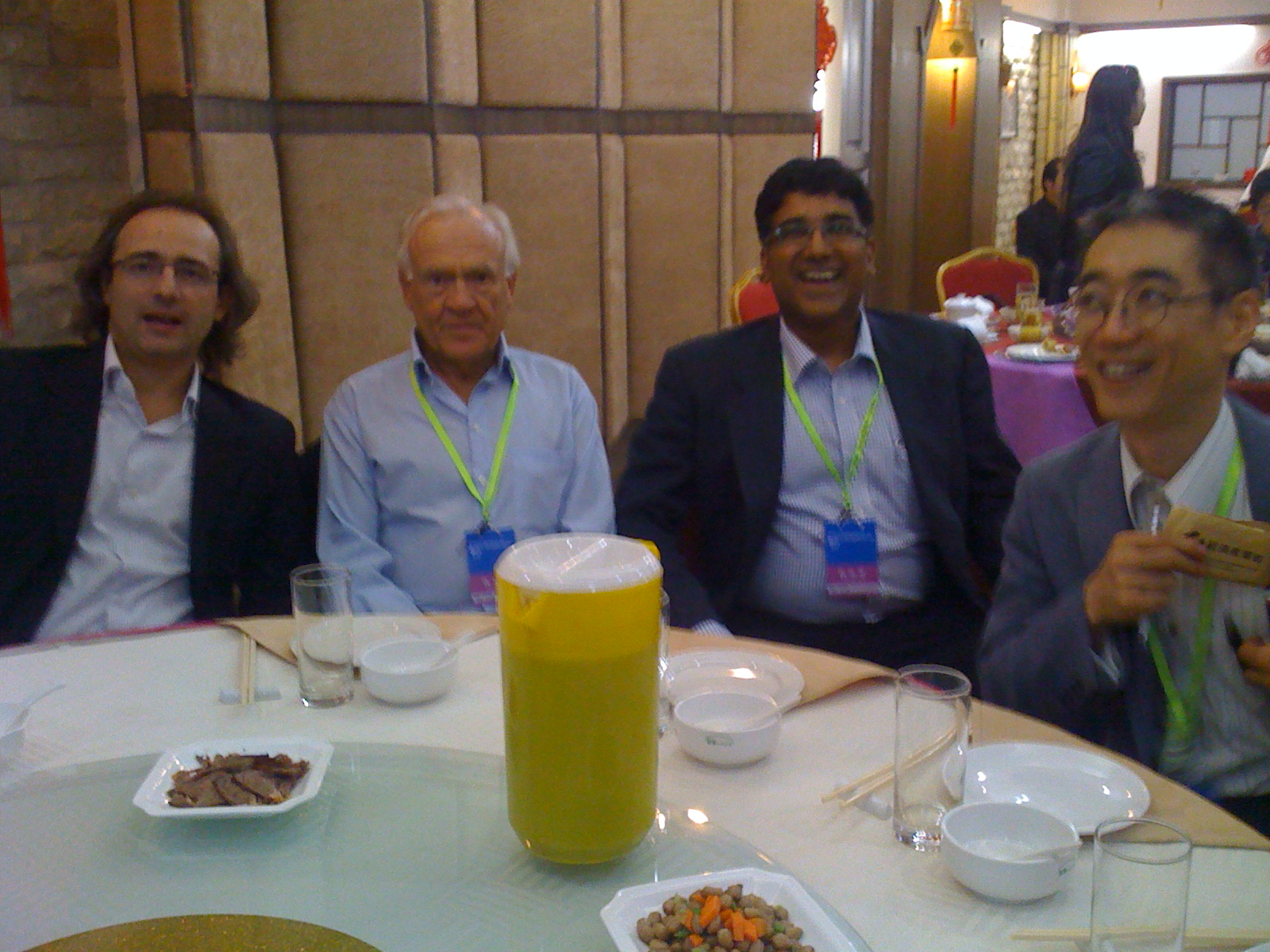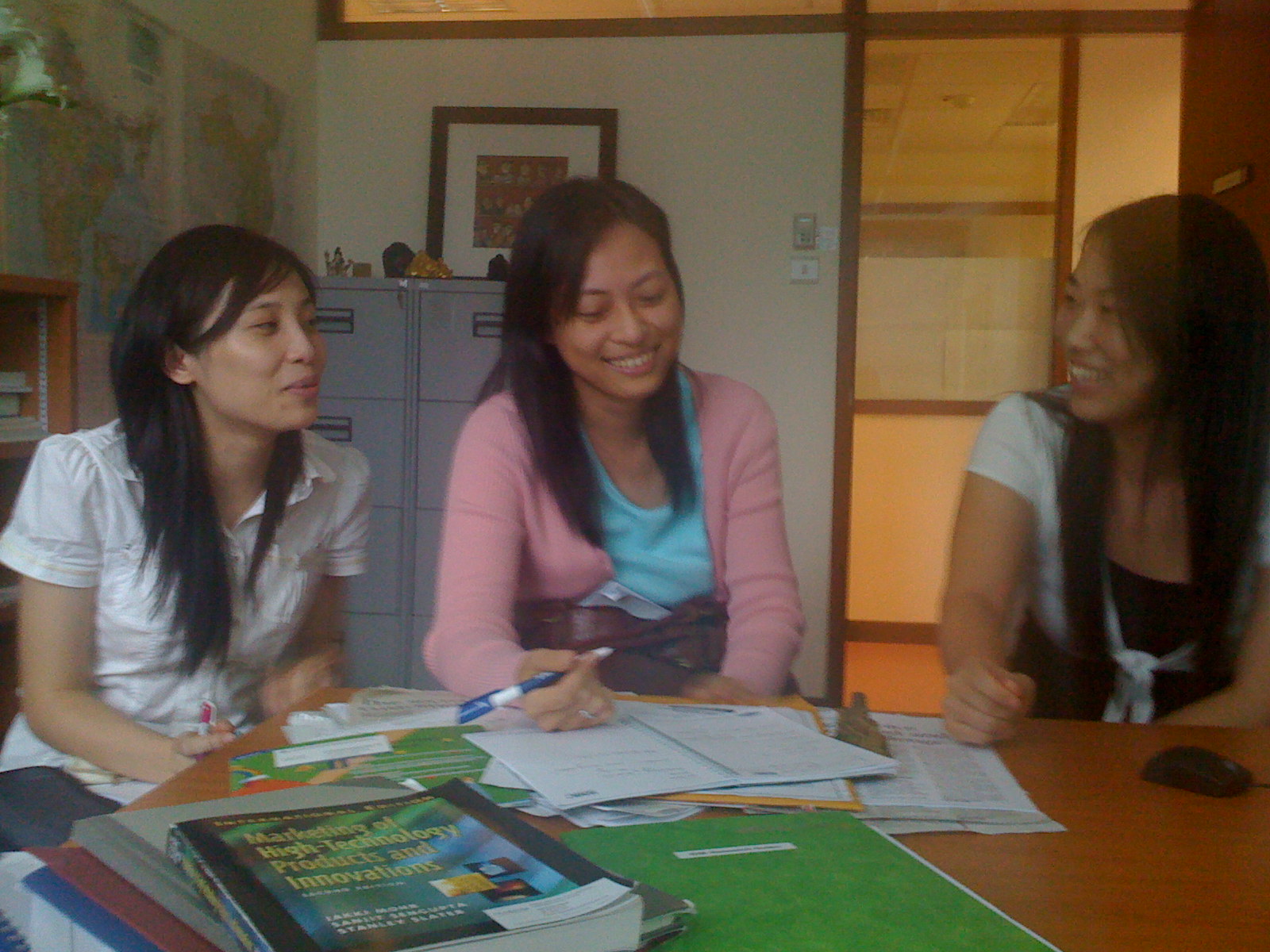Drs Dion Goh, Lee Chei Sian, Schubert Foo, Chris Khoo and PhD student Kokil Jaidka attended the International Conference on Asian Digital Libraries (ICADL) held at Gold Coast, Australia, from June 21-25.
In addition to presenting a paper at the conference, Kokil presented at the Doctorial Consortium, chaired by Drs Edie Rasmussen and Schubert Foo.
Pictures below. Abstracts of papers that DIS folks presented:
Do Games Motivate Mobile Content Sharing?
By Dion Goh, Chei Sian Lee, Alton Chua
Abstract. Indagator (Latin for explorer) is a game which incorporates multiplayer, pervasive gaming elements into mobile content sharing. Indagator allows users to annotate real world locations with multimedia content, and concurrently, provide opportunities for play through creating and engaging interactive game elements, earning currency, and socializing. A user study of Indagator was conducted to examine the impact of the usability of Indagator’s content sharing and gaming features, as well as demographic profiles on participants’ motivation to use the application. Participants felt that the features in Indagator were able to support the objectives of content sharing and gaming, and that the idea of gaming could be a motivator for content sharing. In terms of motivation to use, usability of Indagator’s gaming features, gender and participants. familiarity with mobile gaming emerged as significant predictors. Implications and future research directions are discussed.
A Multifaceted Approach to Exploring Mobile Annotations
By Guanghao Low, Dion Goh, Chei Sian Lee
Abstract. Mobile phones with capabilities such as media capture and location detection have become popular among consumers, and this has made possible the development of location-based mobile annotation sharing applications. The present research investigates the creation of mobile annotations from three perspectives: the recipients of the annotations, the type of content created, and the goals behind creating these annotations. Participants maintained a two week-long diary, documenting their annotation activities. Results suggest that range of motivational factors, including those for relationship maintenance and entertainment. Participants were also more inclined to create leisure-related annotations, while the types of recipients were varied. Implications of our work are also discussed.
Imitating Human Literature Review Writing: An Approach to Multi-Document Summarization
By Kokil Jaidka, Chris Khoo, Jin-Cheon Na
Abstract. This paper gives an overview of a project to generate literature reviews from a set of research papers, based on techniques drawn from human summarization behavior. For this study, we identify the key features of natural literature reviews through a macro-level and clause-level discourse analysis; we also identify human information selection strategies by mapping referenced information to source documents. Our preliminary results of discourse analysis have helped us characterize literature review writing styles based on their document structure and rhetorical structure. These findings will be exploited to design templates for automatic content generation.
Preservation of Cultural Heritage: From Print Book to Digital Library – A Greenstone Experience
By Henny M. Sutedjo, Gladys Sau-Mei Theng, Yin-Leng Theng
Abstract. We argue that current development in digital libraries presents an opportunity to explore the use of DL as a tool for building and facilitating access to digital cultural resources. Using Greenstone, an open source DL, we describe a 10-step approach in converting an out-of-print book, ‘Costumes through Times’, and constructing a DL creation of costumes.

From left: Vilas Wuwongse (AIT, Thailand), Kokil Jaidka (NTU), Nisachol Chamnongsri (Suranaree U. of Technology, Thailand), Shigeo Sugimoto (U. of Tsukuba, Japan), Gobinda Chowdhury (U. Technology Sydney), Chris Khoo (behind the camera!)

Gold Coast skyline from Hilton Surfer's Paradise hotel











